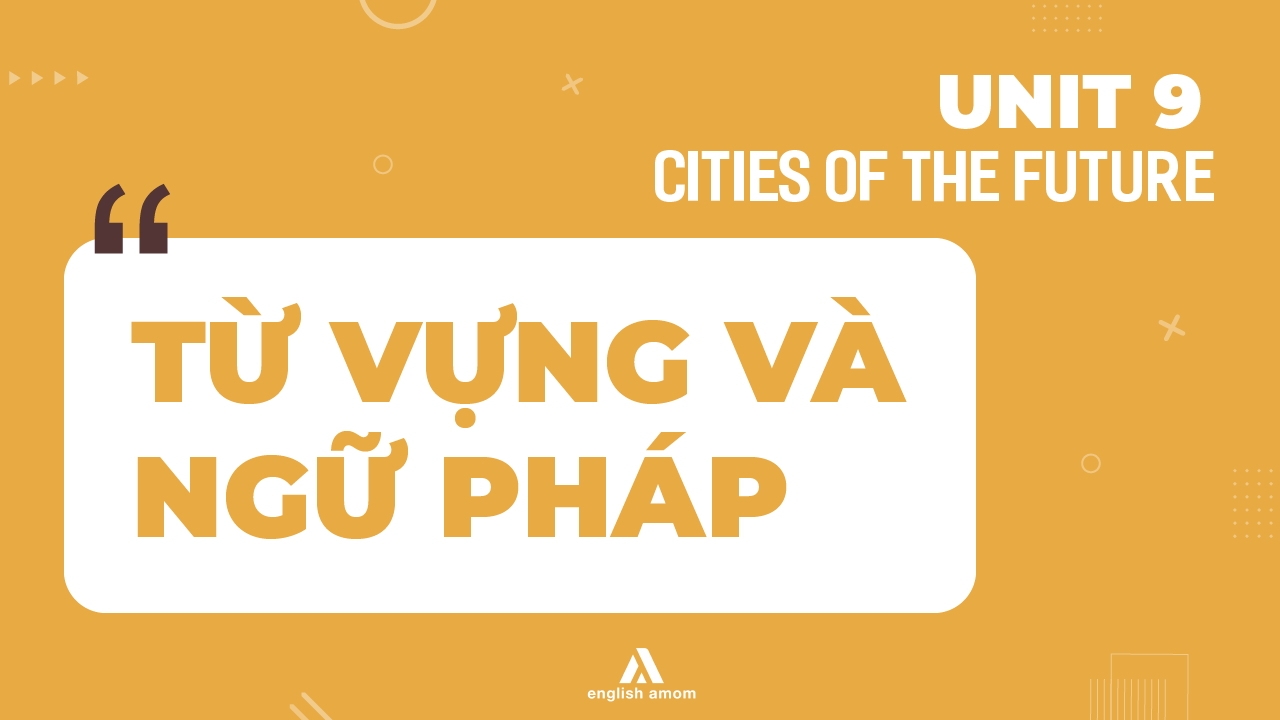
► Kênh hỏi đáp và giải thích thắc mắc kiến thức MIỄN PHÍ → truy cập LINK NHÓM: ENGLISH AMOM
► Kênh YOUTUBE hệ thống toàn bộ bài giảng CLIPS: truy cập LINK: ENGLISH AMOM CHANNEL
► Kênh TIKTOK: ENGLISH AMOM
1) Match a word in column A with a word or phrase in column B.
.png)
ĐÁP ÁN:
| 1. e | 2. c | 3. f | 4. a | 5. d | 6. b |
2) Complete the following sentences with the phrases in 1.
1. The government is making plans to install sensors and cameras in the city centre to .............................. and drivers to avoid traffic jams.
2. It's urgent to .............................. the city's transport .............................. because almost all the roads get flooded after heavy rain.
3. We can improve the .............................. of the inhabitants by reducing pollution.
4. .............................. can enjoy better health care than people living in the countryside, but they are usually busier and more stressed because of the city's fast pace of life.
5. They are building a new waste processing plant to .............................. before it is reused or discharged into rivers.
6. Be prepared for .............................. and shopping malls when you visit big cities like Hong Kong and Beijing
ĐÁP ÁN:
| 1. detect traffic problems | 2. upgrade; infrastructure | 3. quality of life | 4. City dwellers | 5. treat wastewater | 6. overcrowded streets |
3) Complete the sentences with the correct question tags.
1. There aren't any shops or restaurants in this street, ..............................?
2. I think nobody likes to live in a polluted city, ..............................?
3. Let's start our discussion on global warming, ..............................?
4. Something needs to be done immediately to solve the water shortage problem, ..............................?
5. This is what we need for our new house, ..............................?
6. Stop playing this computer game and do your homework, ..............................?
7. You've never got stuck in a traffic jam, ..............................?
8. Everyone in our class will take part in the school's Green Campaign, ..............................?
ĐÁP ÁN:
| 1. are there | 2. do they | 3. shall we | 4. doesn't it | 5. isn't it | 6. will/would/could/won't you | 7. have you | 8. won't they |
4) Answer the questions, using conditional sentences.
1. What do you usually do if you don't have to go to school?
2. What happens if you leave a fish out of water?
3. What happens if you heat water to 100 degrees Celsius?
4. What number do I need to dial if I'm involved in a traffic accident?
5. How much is a motorcyclist fined if he doesn't wear a helmet?
6. Where do you usually go if you have a long holiday?
7. Where can tourists go if they want to taste local food?
8. What time do you usually go to bed if you don't have too much homework to do in the evening?
ĐÁP ÁN:
1. If I don't have to go to school, I usually help my mother with the housework.
2. If I leave a fish out of the water, it dies.
3. If I heat water to 100 degrees Celsius, it boils.
4. If you're involved in a traffic accident, you need to dial 115.
5. If he doesn't wear a helmet, he's fined up to 200,000 VND.
6. If I have a long holiday, I usually go to (Nha Trang).
7. If tourists want to taste local food, they can go to (the local market).
8. If I don't have too much homework to do in the evening, I usually go to bed at 10.
5) Some of the sentences are incorrect. Pick out the wrong ones and correct the mistakes.
.png)
ĐÁP ÁN:
1. would die ⟶ die
2. isn't it ⟶ hasn't it
3. Correct
4. has he ⟶ does he
5. don't I ⟶ can they
6. Correct
7. mixed ... would get ⟶ mix ... get
8. aren't these ⟶ aren't they

